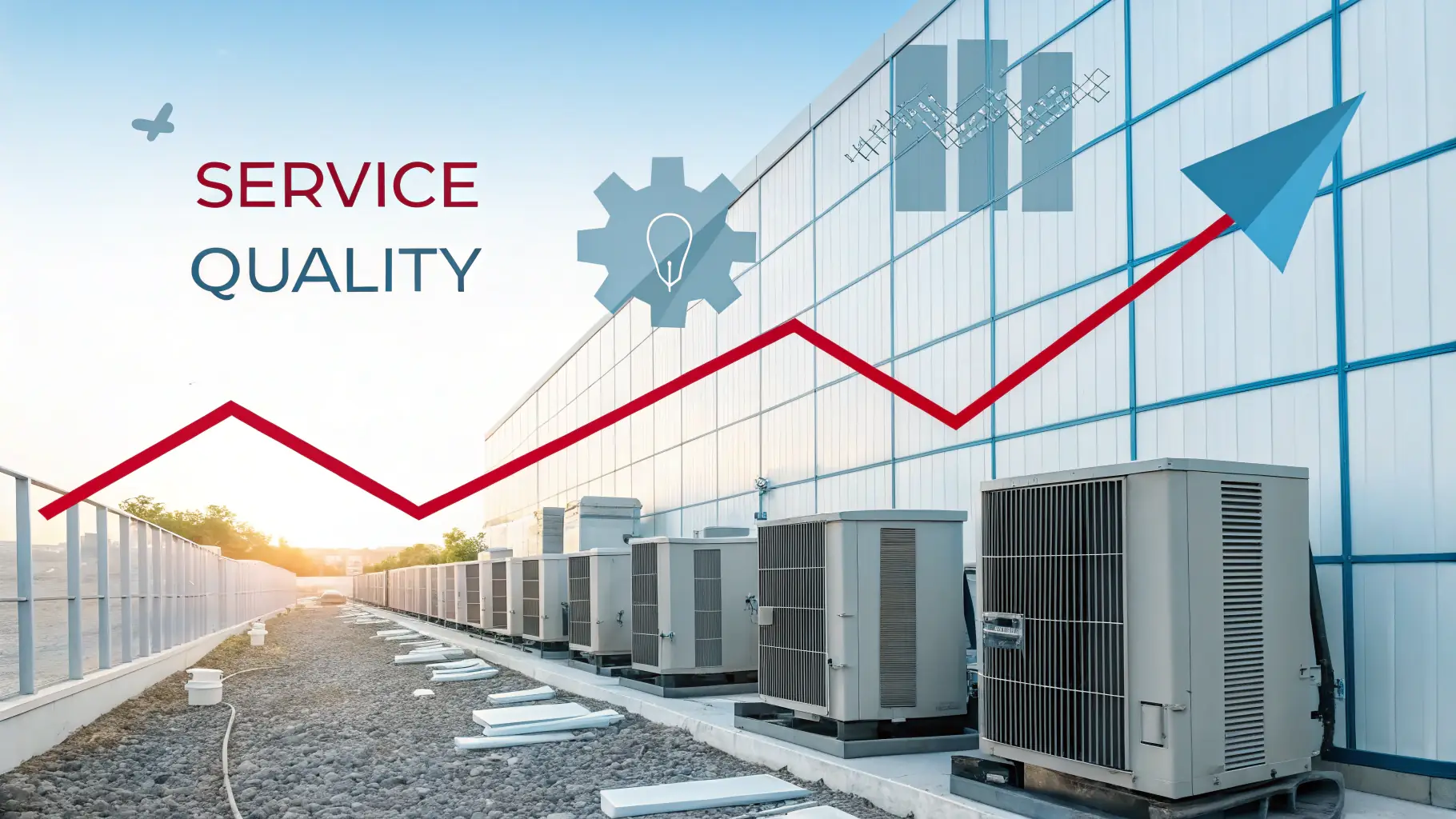If you’re an HVAC business owner thinking about selling in the near future, one of the best ways to increase your company’s market value is by building recurring revenue streams. Buyers—and more importantly, acquirers—see predictable, contract-based revenue as a sign of stability, reduced risk, and long-term growth potential. This means that the more you can prove steady cash flow, the higher price your HVAC business can command at exit.
In this guide, we’ll break down exactly why recurring revenue matters, the different models you can implement, and how it ties directly to your exit strategy.
Why Recurring Revenue Increases HVAC Business Value
Recurring revenue signals financial consistency and customer loyalty. Instead of relying solely on seasonal service calls or one-time installations, recurring income makes your business attractive to acquirers.
Here’s why it matters:
- Predictable Cash Flow: Investors and buyers love guaranteed revenue.
- Reduced Risk: Less dependency on fluctuating demand or weather conditions.
- Higher Multiples: Companies with recurring contracts often sell for higher EBITDA multiples.
- Customer Retention: Contracts and memberships lock in customer loyalty.
According to the Small Business Administration (SBA.gov), companies with predictable financial models typically qualify for better financing and higher acquisition interest
Recurring Revenue Models for HVAC Businesses
1. Service & Maintenance Contracts
Offer yearly or biannual maintenance agreements that cover inspections, tune-ups, and priority repairs.
Benefits:
- Locks in repeat customers.
- Increases trust and long-term relationships.
- Adds predictable monthly or yearly income.
2. Membership & Subscription Plans
Create a “VIP Membership Program” that includes benefits like
- Priority scheduling
- Discounts on parts & services
- 24/7 emergency support
This gives customers peace of mind while giving you a steady income stream.
3. Extended Warranty Programs
Sell warranties for new installations. This provides recurring payments while ensuring customers come back to you for service.
4. Smart Home & Energy Efficiency Packages
Bundle HVAC services with IoT monitoring systems, filters, and energy audits. Monthly monitoring fees = recurring income.
How Recurring Revenue Impacts Your Exit Strategy
When you eventually plan to sell, acquirers will ask:
- How much of your revenue is recurring vs. one-time?
- How long are the contracts? (multi-year is best.)
- What percentage of customers renew their agreements?
The higher your recurring revenue ratio, the easier it is to position your HVAC company as a low-risk, high-value acquisition.
For more on exit planning, check out our blog:
➡️ Maximizing HVAC Business Value: A Deep Dive into Exit Strategies
Steps to Build Recurring Revenue Before Selling
- Audit Your Current Revenue Streams
Identify how much is currently recurring vs. seasonal. - Introduce Maintenance Agreements
Start small, test, and expand. - Create Bundled Packages
Pair installations with long-term service plans. - Train Your Sales Team
Make recurring plans a priority in every pitch. - Track Renewal Rates
Renewal percentages are key metrics buyers look at.
Real Example: Why Buyers Prefer Recurring Revenue
Imagine two HVAC companies
- Company A: $2M annual revenue, 90% one-time installs, little repeat business.
- Company B: $2M annual revenue, 40% recurring contracts with 3–5 year terms.
👉 Even though both earn the same, Company B will sell at a higher multiple because its income is more secure and predictable.
Common Mistakes to Avoid
- Relying only on one-time projects.
- Offering contracts without long-term renewal incentives.
- Not tracking customer churn.
- Underpricing contracts just to gain volume.
FAQs
1. Why do buyers care about recurring revenue in HVAC businesses?
Because it reduces financial risk and increases predictability, making your business more valuable at exit.
2. How can I start building recurring revenue if I’ve never offered contracts before?
Begin with a simple maintenance program, then expand to memberships and bundled offers.
3. Do recurring contracts really increase sale price?
Yes. Businesses with recurring revenue typically sell at higher multiples.
4. Should I prioritize short-term or long-term contracts?
Longer contracts (multi-year) are more attractive to buyers since they guarantee future cash flow.
5. Is recurring revenue suitable for small HVAC businesses?
Absolutely. Even small companies can double their exit value with just 20–30% recurring revenue.
Conclusion: Build Recurring Revenue, Build Your Exit Value
Recurring revenue is more than just steady cash—it’s a value driver that makes your HVAC business highly attractive to potential acquirers. Whether through maintenance contracts, memberships, or bundled packages, adding predictable income streams is one of the smartest moves you can make before selling.
Want to learn more about preparing for a smooth sale? Read our related blog:
➡️ Financial Cleanup for HVAC Businesses: Preparing for a Smooth Sale
At Blueexit, we specialize in helping HVAC business owners increase company value and prepare for profitable exits.
👉 Ready to explore how recurring revenue can boost your sale price?
Contact Blueexit today for a confidential consultation.
